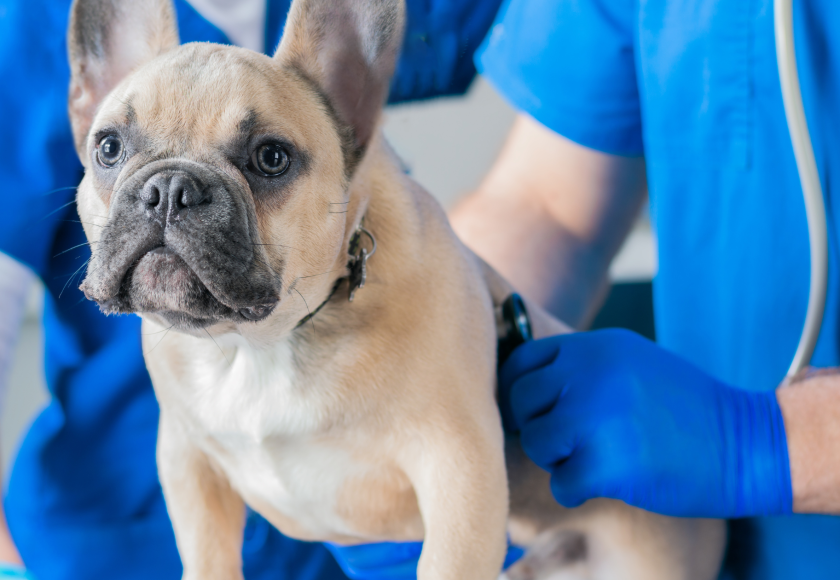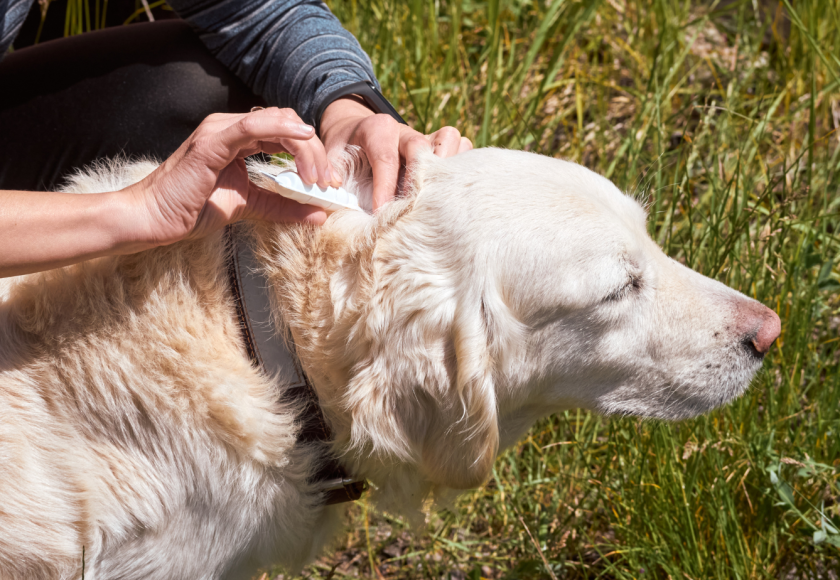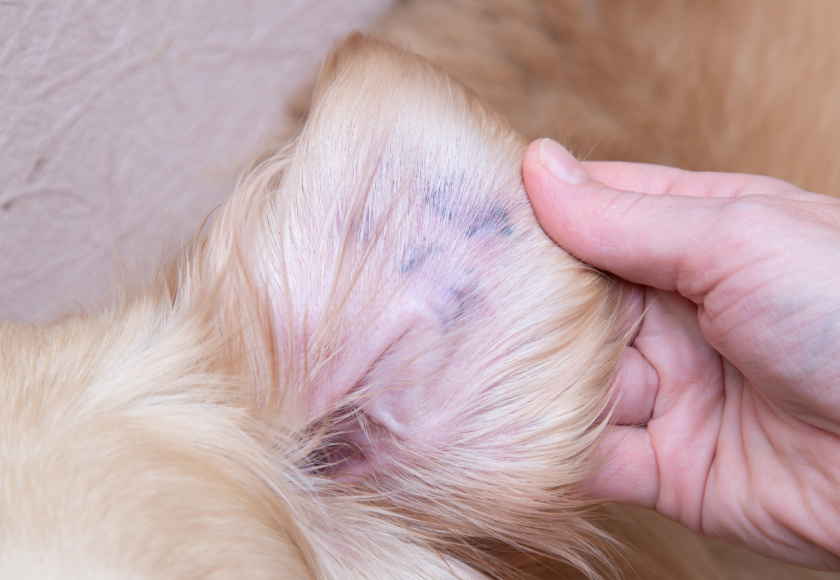The most common skin diseases in cats and their symptoms. Skin diseases in cats can arise for various reasons and may be related to infections, allergies, or more serious endocrine diseases and kidney health problems. Skin diseases in cats often cause not only discomfort, but also other inconveniences for our little four-legged family friends.
To ensure your cat’s well-being, a responsible owner should know what the most common skin diseases in cats are, how they manifest themselves, and when to consult a veterinarian.
Table of contents
Signs of skin diseases in cats
- Unexplained redness or itching of the skin. If you notice that your cat keeps scratching at objects around it, either with its paws or its skin, and its skin becomes red, this may be a sign that it has skin problems.
- Skin changes. If you notice flaking, peeling, pustules, or rashes on your cat’s skin or coat.
- Unseasonal, unusually heavy hair loss – cats shedding. If you notice that your cat is shedding and losing more hair than usual, or that its coat is becoming thinner, this may indicate health problems.
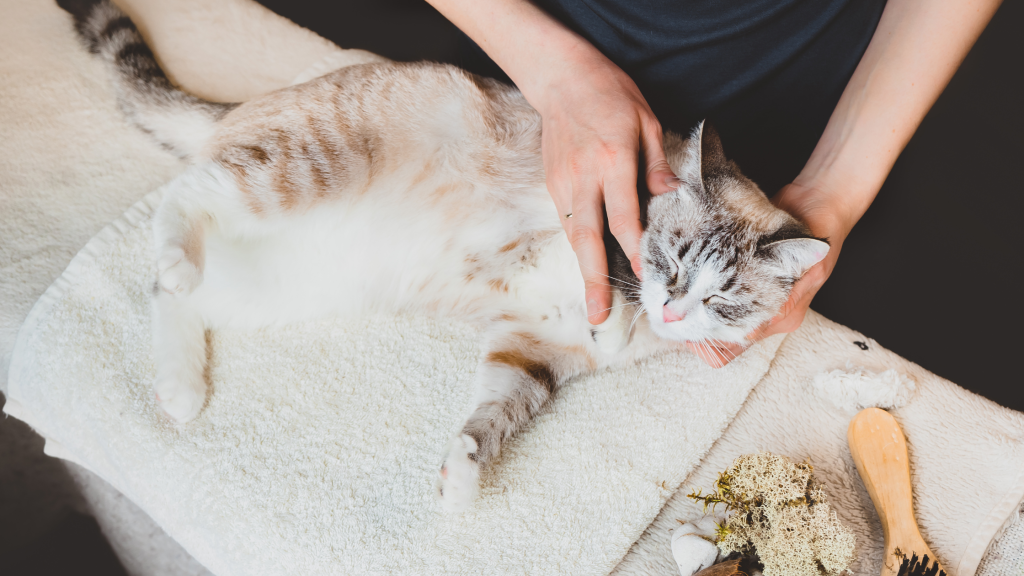
The most common skin diseases in cats
Dermatitis
This is one of the most common skin diseases in cats, which can be caused by allergies, infections, or poor nutrition. Dermatitis manifests itself as redness, itching, flaking, or sores on the skin, and hair loss.
Fungal infections
Fungal skin infection in cats is an infection that often manifests itself in round patches of bald skin, dandruff, and causes itching, skin changes such as redness, rashes, and sores.
Fungal skin infections in cats can be transmitted from one cat to another, to dogs, and to owners, so it is very important to detect and treat this type of infection in a timely manner.
How to recognize fungal infections in cats?
- You may notice that your cat’s skin becomes flaky, and round or irregularly shaped rashes may appear.
- Your cat may experience constant itching or rubbing against objects in its environment. It does this to relieve the discomfort caused by the itching.
- Fungal infections of the skin in cats can cause hair loss or bald patches.
- Fungal infections can cause redness and swelling of the skin, especially around the areas affected by the fungus.
If you suspect that your cat may have a skin fungus, contact your veterinary clinic immediately, as only a doctor will be able to make an accurate diagnosis and prescribe the appropriate treatment.
Only a veterinary dermatologist can prescribe medications that need to be administered or applied to the skin and coat, as well as shampoos designed for direct antifungal treatment.
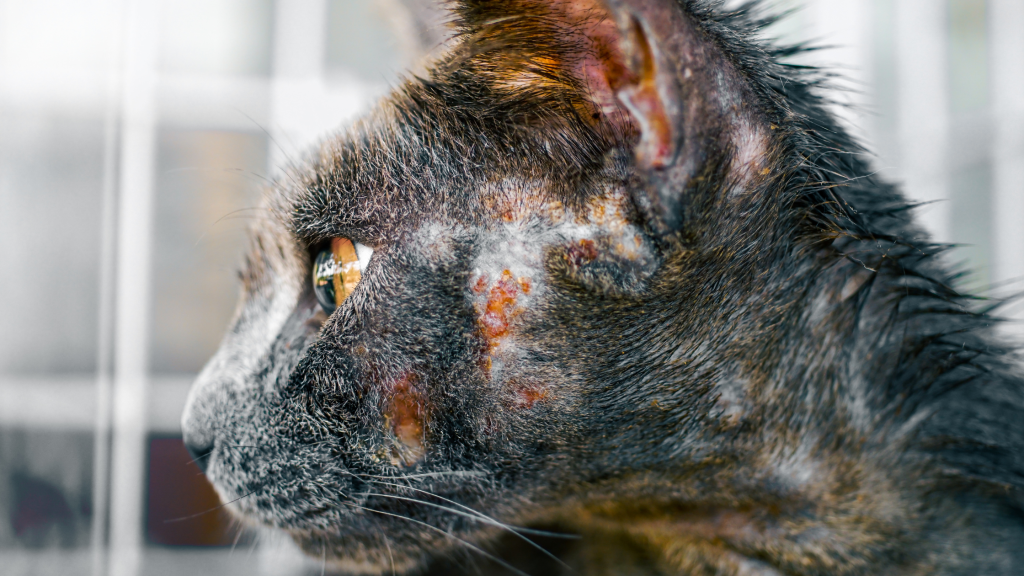
Parasites of cat skin and coat
Fleas, ticks, and other parasites that live on cats’ skin and fur can cause various skin diseases and problems for cats. Cat fleas can cause itching and redness of the skin.
When scratching itchy skin, cats can damage the skin with their claws, which can lead to secondary flea-induced skin inflammation, known as dermatitis. It is also important to note that fleas are carriers of gastrointestinal parasites, so when eliminating fleas, it is very important to also treat cats with medication for stomach and intestinal worms.
Ticks can transmit infectious diseases to cats that affect many internal organs (kidneys, liver, etc.).
Folliculitis in cats
This is an inflammation of the hair follicles, which often manifests itself as skin pimples or pustules. This condition can be painful and cause significant discomfort for cats.
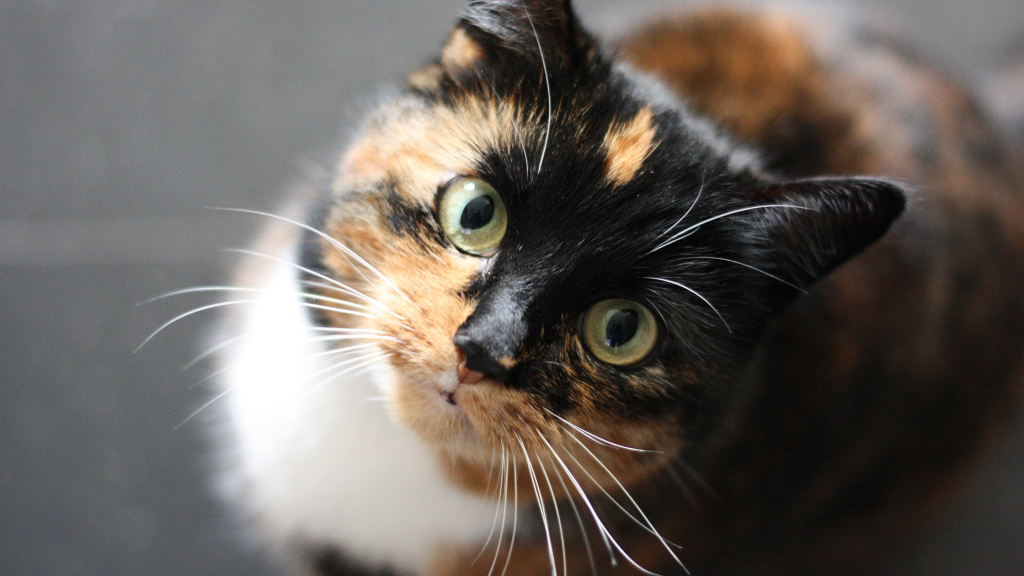
Why does a cat shed?
Your cat may be shedding for a variety of reasons, including poor nutrition, stress, allergies, or parasites. It can also be a seasonal phenomenon, when cats shed their winter or summer coats. It is important to make sure that your cat eats a complete diet according to its lifestyle needs, drinks enough water, and is active.
According to the latest global veterinary trends, cats should be checked once a year to prevent serious health and skin problems.
What to do if your cat is pregnant?
To help your cat eat less and keep its coat healthy and shiny, there are several factors to consider:
- Proper nutrition. Ensure that your cat receives a balanced diet that is appropriate for her age, size, and health. High-quality food that meets its nutritional needs contributes to healthy skin and coat. Clean your cat’s litter box and keep its sleeping area clean to reduce bacteria and allergens that can affect the coat.
- Regular hygiene. Daily or at least regular brushing of your cat’s coat helps remove unwanted hair that has not fallen out in time and can cause skin problems such as feline folliculitis.
- Stress reduction. Stress can affect your cat’s coat, skin, and overall health. A cat’s immune system weakens when it is stressed. Make sure your cat has a safe and calm environment where it can feel safe and comfortable.
If you notice that your cat is shedding excessively out of season or showing symptoms of coat and skin problems, consult your veterinarian. Only a veterinary dermatologist can advise on proper care and, if necessary, prescribe special treatment.
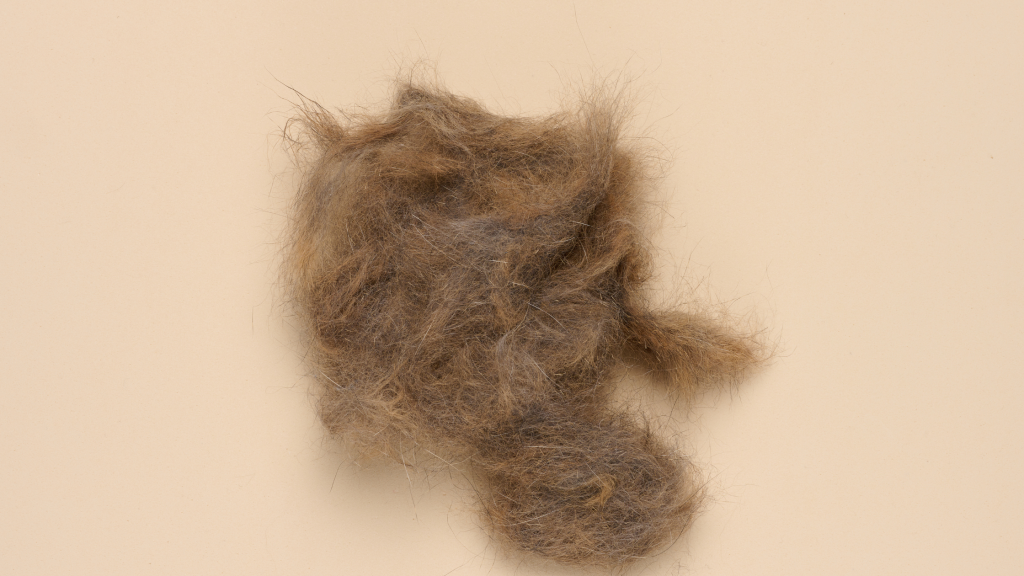
When should you consult a veterinarian about skin problems in cats?
If you notice any symptoms or changes in your cat’s skin, it is important to consult a veterinarian as soon as possible to ensure that the infection is diagnosed and treated properly, preventing it from spreading and alleviating your cat’s discomfort.
Untreated skin conditions in cats can lead to more serious health problems. Some conditions can progress and cause long-term or even irreversible health consequences for your cat. In addition, the itching and discomfort caused by many skin diseases can cause significant stress for your cat, which is a major health concern.
Do not delay visiting the vet to avoid more serious problems and ensure your pet’s well-being in a timely manner.
The Begemotas Veterinary Clinic provides all services related to cat skin. A veterinary dermatologist ensures the proper diagnosis, treatment, and prevention of cat skin diseases and other problems.



